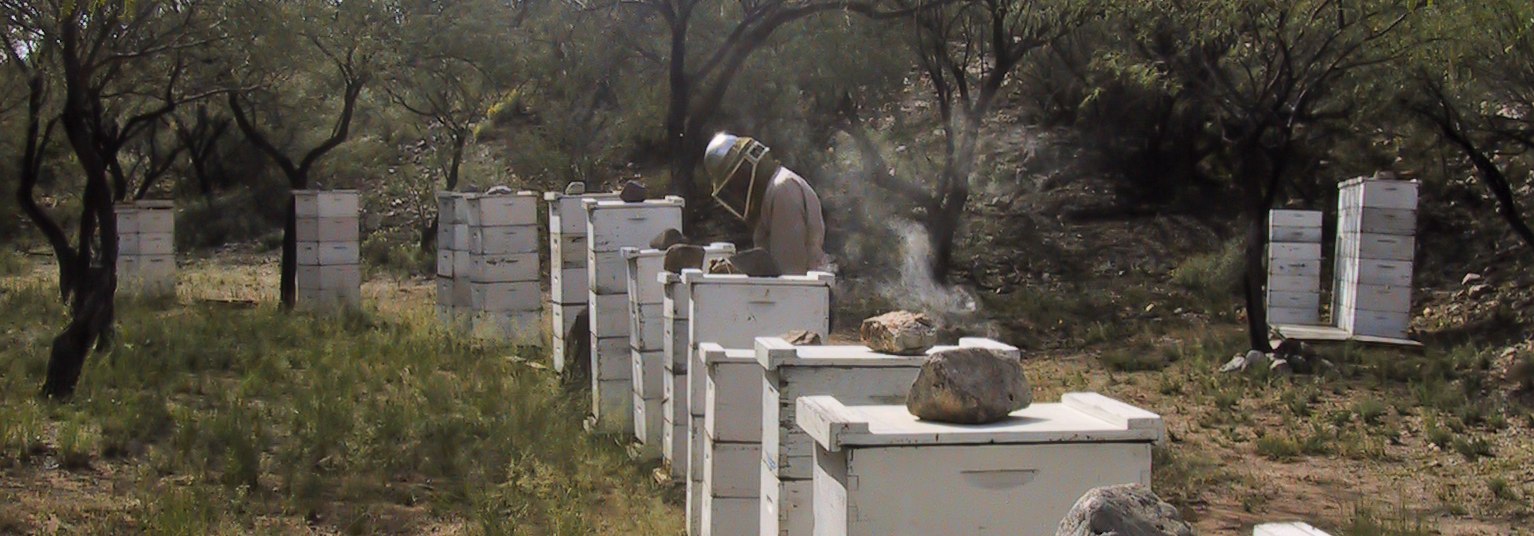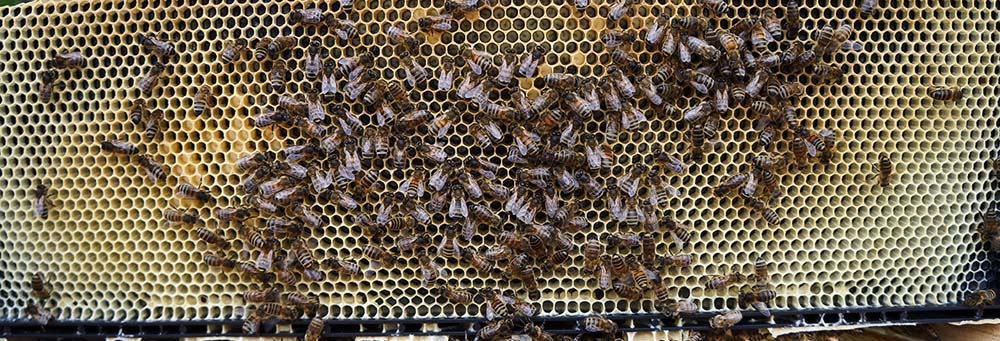A week ago I brought home the breeder queens for ease of grafting. They should at least have been treatment free last year (2013) and they should not have been a new colony 2013. The queen should be at least
Taking home the breeder


A week ago I brought home the breeder queens for ease of grafting. They should at least have been treatment free last year (2013) and they should not have been a new colony 2013. The queen should be at least

Erickson and Hines in test apiary 2003 Dr Eric Erickson did a great job in the 1990’s in Arizona together with A.H. Atmowidjojo and Lenard Hines (commercial beekeeper with 700 colonies), first showing it’s relatively easy to identify more resistant
Weather has turned to April when May arrived. Freezing nights and barely flying weather in days. But solar wax melter works, in the middle of the day. Though development of the bees have begun strong this spring. They have grown

Colony 47 is a remarkable colony. It started as a walkaway split last year. From colony 236. It is placed in apiary 4 as colony no 7. The split was moved from apiary 23 to apiary 4. When I checked

You remember the previous post about the “multiple test”(MT)-colony, natural positioning, plastic frames, a mouse (or mice), mild winter and what a good condition this colony came out with now in spring. I’ve been thinking about it. Mild winter Yes

Autumn was warm, with bees flying in november. That’s rare. Winter was mild, only 2-3 weeks with steady freezing temperatures day and night in January. That’s rare too. Spring has come slow with temperatures just above freezing. Sun is rising
Marco Moretti made a valid comment to the sugar shaker post. It doesn’t surprise me that Antonio Nanetti found checking mite populations besides a real treatment is unreliable. It is many factors making the results uncertain. Why beekeepers want to
Larry Garret uses the powdered sugar shaker method to count mites. The method works well for his smaller number of colonies at each apiary and the tools are very easy to transport and store. Although there may be a slight

I wrote about counting mites recently. Even if I don’t, others do, and sometimes it gives information that may help you make a decision. John Harbo mentioned when he lectured in Sweden in May 2013 that before choosing the method

Yes, do struggle for resistant bees. Don’t just talk about it! Or say an easy no, it’s impossible, or an easy yes: ”Just do like I tell you.” Tell me your success story. I tell you mine, well a part